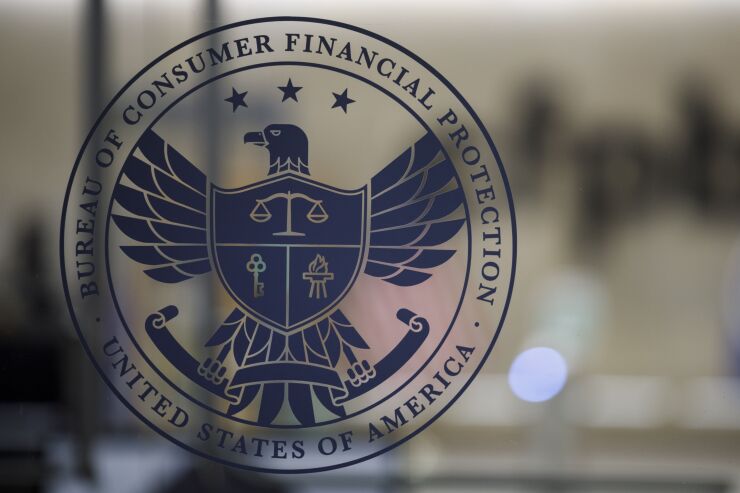The Consumer Financial Protection Bureau slapped U.S. Bank with a $37.5 million fine after finding that the bank’s employees unlawfully accessed credit reports and personal customer data to open unauthorized checking, savings and credit card accounts.
The allegations by the CFPB are similar to ones that arose from the Wells Fargo fake-accounts scandal that broke in 2016. At the time, then-U.S. Bancorp CEO Richard Davis
The CFPB found that U.S. Bank opened a wide range of accounts — including reserve and premier lines of credit that carry high interest rates and expensive fees — without the permission of customers. The Minneapolis-based bank

“For over a decade, U.S. Bank knew its employees were taking advantage of its customers by misappropriating consumer data to create fictitious accounts,” CFPB Director Rohit Chopra said in a statement. “We all must do more to hold lawbreaking companies accountable when they abuse and misuse our sensitive personal data.”
The bureau said the bank had inadequate procedures from 2010 through 2016 to prevent and detect fake account openings. The bank did not provide consumers with disclosures that are legally required when opening new deposit accounts, the bureau said.
The CFPB’s investigation took more than five years. A spokesman for U.S. Bank said a small number of unauthorized accounts were opened.
“We are pleased to put this matter behind us,” said Lee Henderson, a U.S. Bank spokesman. “Today’s settlement related to legacy sales practices [involves] a small percentage of accounts dating back to 2010. Since 2016, the Bank has made process and oversight improvements that have been effective in addressing these sales practices concerns.”
Regulators have been increasingly vigilant in recent years in ferreting out bank misconduct related to account creation. The CFPB sued
In the
Before 2016, U.S. Bank had relied primarily on consumers to “self identify” alleged improper activity, the CFPB said. Allegations of misconduct were only recorded or investigated “if the allegation was escalated above the bank-branch level,” the bureau said.
“Respondent was aware that many allegations were not escalated or recorded,” the CFPB said in the consent order.
The CFPB said the bank violated the Fair Credit Reporting Act, by obtaining or using consumer reports without a permissible purpose in connection with opening unauthorized credit cards. The bank also violated the Consumer Financial Protection Act, the Truth in Lending Act and the Truth in Savings Act, and their implementing regulations, the bureau said.

The order also requires U.S. Bank to develop a plan to remediate all harmed consumers by returning all unlawfully charged fees and costs, plus interest.
Further, the CFPB said U.S. Bank’s conduct likely caused substantial injury to consumers in the form of fees, negative effects on credit reports, and the loss of control over their personal information.
U.S Bank is the fifth-largest bank in the country, with 2,800 branches.





